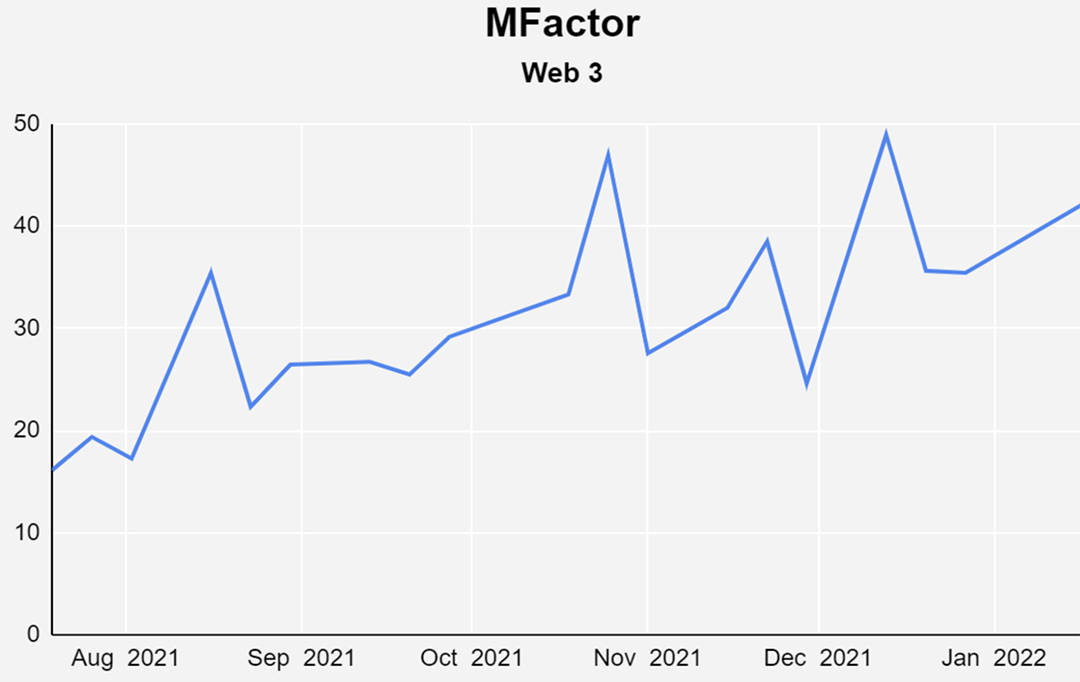WTF is Web3?
The Momentum of Web3
You’re probably pissed that Google knows everything about you … and that it keeps showing you ads of the same toaster you looked at once four years ago.
But what if we lived in a world where you owned and controlled your data? What if the companies were decentralized and the consumers were their CEOs?
Say hello to Web3, the next generation of the internet.
While we don’t know exactly what Web3 will look like yet, it’ll be a huge shift in power from Big Tech to individual users. That’s because Web3 is all about decentralizing information — letting us choose who we give private data to.
In short, Web3 uses blockchain to power the internet. Storing data on blockchain decentralizes it, making its use by businesses transparent and protecting it from hacking.
WAIT, WHAT? Let’s break it down:
Web3: A system built on blockchain that allows people to create, consume, and own their work. It is built on peer-to-peer computer networks… which means it’s owned by PEOPLE, not middlemen like banks, legal contracts, or social networks.
Blockchain: A digital ledger of transactions duplicated across an entire network of computer systems, making it nearly impossible to hack.
Cryptocurrencies: A digital peer-to-peer payment system that doesn't rely on banks. Crypto payments exist purely as digital entries to an online database describing specific transactions.
NFTs (Non-Fungible Tokens): Crypto assets on a blockchain with unique metadata that distinguish them from each other and prevent them from being replicated.
Back to that toaster… Web3 will change how we experience privacy. First, we’ll become the consumer again — not the product. Our digital identities and the transactions we make online involve highly sensitive personal data. With Web3, these same identities and transactions will be secured on the blockchain.
Second, the Government and Googles of the world will no longer control our data. Instead, all apps, users, and connected devices will interact directly, with data stored in secure, decentralized ways. This means fewer data breaches and individuals controlling their data again.
WHAT’S UP ⬆️:
Gaining control of our data. Consumers can now become shareholders on products or services and voice how things should be done.
Take the gaming industry: instead of gamers getting tilted by bugs in their favorite game or patches that nerf their characters, they’ll be able to invest in the game itself.
Web3 provides complete transparency, so everyone will be on equal footing when they decide what businesses or organizations to invest in.
Web3 could also prevent hacking, thanks to blockchain’s end-to-end encryption technology. Apple, Google, and Facebook already use blockchain for security.
Solana Ventures, Lightspeed Venture Partners, and FTX have announced a $100 million investment in Web3 gaming. The first studio to benefit is Faraway, which is preparing to launch the first live multiplayer title on the Solana blockchain. 🎮
Google is stepping up its interest in blockchain. For years, Big Tech’s reaction to blockchain has been ¯\_(ツ)_/¯. But that may be changing as the biggest names fight to stay Web3 relevant.
WHAT’S DOWN ⬇️:
The rise of Web3 will make Web 1.0 sites seem even more obsolete. Prepare for legacy websites to feel like navigating Space Jam.
WHAT’S NEXT ➡️:
Disruption: Big Tech is in for a shock as Web3 shifts power back to users. We’ll become participants and shareholders in the tech platforms we use, not just customers or products.
Innovation: Blockchain will guarantee secure transactions, increasing trust between merchants and customers. And as blockchain becomes more widely adopted, anything from a meme, a piece of art, a tweet, or concert tickets will be able to become an NFT.
Polarization: Tech giants like Google, Facebook, and Microsoft make a fortune from user data. 😡 But Web3 will enable all of us to be compensated for our time and data.
Stickiness: Consumers want convenience and control over their purchases. Blockchain allows both. And crypto in e-commerce is expected to become just as common as credit cards or PayPal.
Social Impact: Web3 will allow users to sell their own data while still retaining ownership and data privacy. That way, websites and apps will be able to use data more meaningfully and tailor information to each user.

